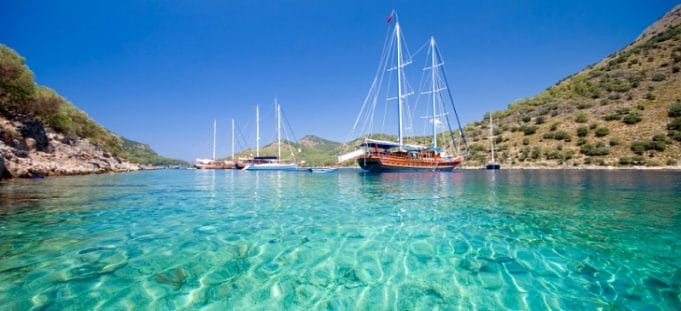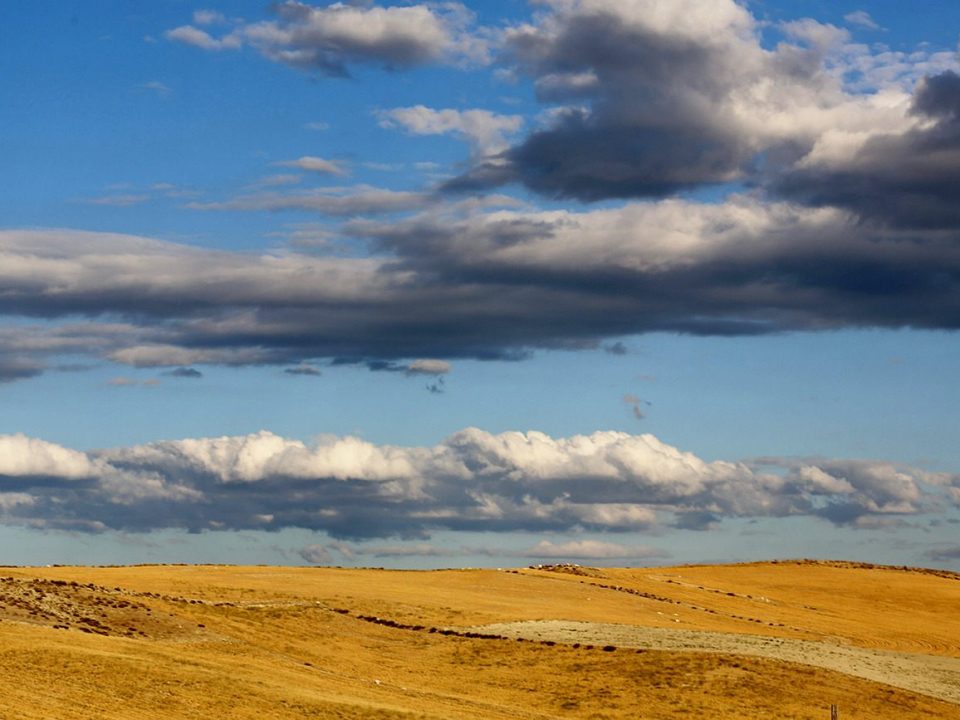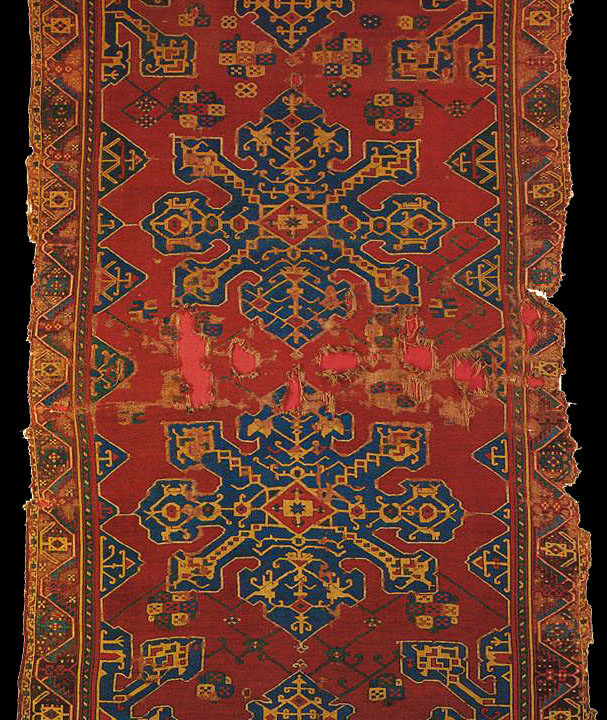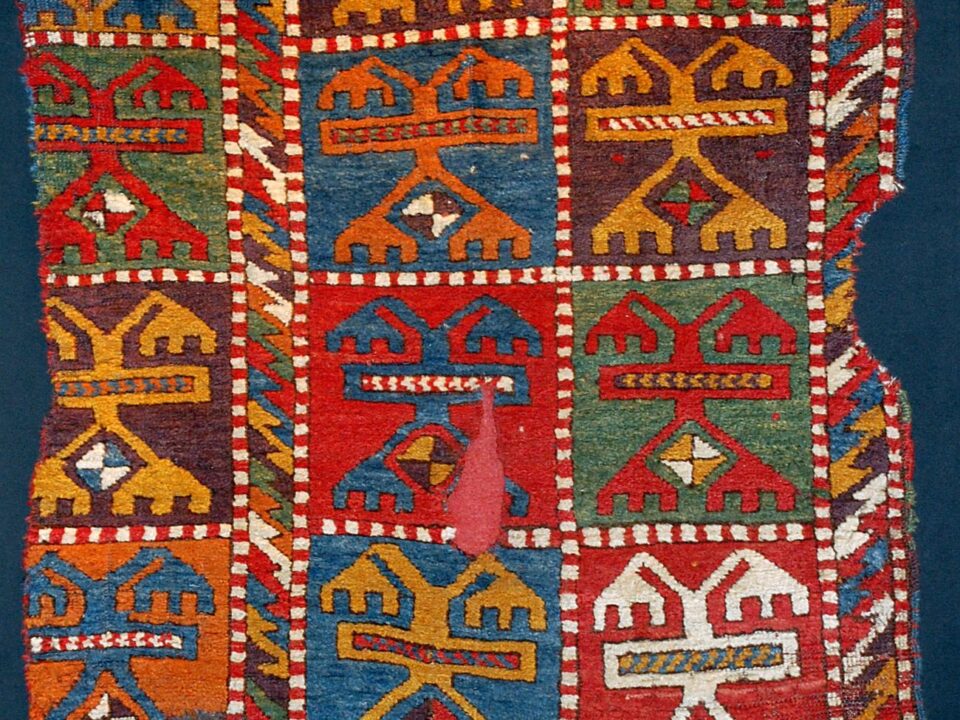
Turkey, the Homeland of Intangible Cultural Heritage
May 11, 2020
A Desire Revealed, the Story of Ismail
May 11, 2020
- Beautiful nature of The Mediterranean Coasts
Turkey has one of the cleanest sea coasts of the Mediterranean, preserved with very diversified undersea life, gold sandy beaches lined by kilometers of turquoise rocky reefs which house many endemic kinds of fish, corals, and other natural beauties of underwater life. Generally approved by “Blue Flag Certificate”, Turkish coasts provide wonderful opportunities both for sea-sand-sun lovers and alternative-sports addicts like scuba divers, and wind and kite surfers.

A bay with crystal clear sea water in Datça / Muğla

Windsurfing school in Alacati Bay/ Izmir
- History has always been very deep and vast in Turkey
The history of the Anatolian Peninsula, which forms 90% of today’s Turkey, has a tremendous historical background of 12,000 years. It features the first common publicly-used building made by human beings, while at the same time the oldest known cult worship site of humanity, “Göbeklitepe,” situated in Şanlıurfa, changed the currency of history.
Çatalhöyük, built 8000 years ago and the first city of the world populated by more than 6,000 people, is visited by thousands of people each year. Turkey has the highest number of ancient Greek and Roman sites, even more than in Italy and Greece. Seljuk and Ottoman Empires spread palaces, mosques, bridges and many other civil and governmental monuments all over the country. You will have difficulty choosing which to visit and experience on your trip.

Göbeklitepe excavation remains dating to nearly 10,000 BCE.

Ancient Xanthos site, the capital of Lycia, Kaş/Antalya

The Blue Mosque, one of the wonders of Istanbul’s Old City
- Crossing point of different cultures
Turkey has housed more than 35 ethnicities, states, and cultures during its history. In Turkey one can enjoy the richness of the culture, race, ethnicity, and diversity. The county is the only one founded on a peninsula stretching from east to west, and has always been a geographical and cultural passageway from east to west. The land, having extremely fertile soil and many rivers which pour life towards the Middle East, has always been a magnate of attraction for many civilizations. The first states of the world were founded just here. The richest Neolithic cities, the famous Troy of the beautiful queen Helen, the Hittite Empire, the lord of the iron and wheat, Assur colonies, the bringers of writing and commerce, Phrygians, who have gold flowing rivers and who invented money, Lydians having the Magna Mater, the mother-earth as the supreme deity, Greeks who raised beautiful marble cities and nurtured famous philosophers such as Aristoteles, Diogenes, Thales, Xenophanes and many others… Turks who brought the colors of the nomadic culture, Seljuk, and Ottoman civilizations, other ethnicities such as Laz, Circassians, Kurds, Armenians, Assyrians, Arabs, Albanians, Bosnians, Jews, all lived and live in harmony with each other in many cities of the country. From time to time, you will meet someone speaking three or four local languages at the same time. Try to communicate! You will love this experience of ethnic and cultural diversity.

Kurdish women in traditional dresses dancing in a wedding in Hakkari/S.E. Turkey

An Assyrian Bishop in Mor Gabriel Monastery Mardin/S.E. Turkey
- Hospitality? You are more than welcome
urkish people are very famous in the world for their hospitality. This is thanks to the diversity of the cultures, races and ethnicities living all together and being tolerant and hospitable to each other. Especially if you are foreigner you are welcome, no matter in which region of the country you are . At least at one point during your trip, you will for sure be offered “some” cups of Turkish tea (normally one is not enough for them to offer) or Turkish coffee. In Turkey, there is a saying about 40 years of remembrance in one cup of coffee. If you are invited to a house (no matter whether or not they know you,) they will serve you a meal, that you should normally eat to show your sincerity to the householder. Turkish people believe that a holy saint could be disguised as a guest, or traveler or foreigner, COMMA and would check their generosity and hospitality and will leave abundance to the householder if they behave accordingly. So guests are holy for Turkish people. Try to profit from the situation and integrate with locals, feel the ethnic-cultural diversity of these people ready to hug you, you will love this unique experience.

A Turkish village woman serving Turkish coffee in her traditional house, Safranbolu /N.W. Turkey

Greek women of Imros island, having Turkish tea and chit-chat in the street in front of their houses, Çanakkale/N.W. Turkey
- The diversity and beauty of nature
The natural diversity of the country is amazing and unique. You can swim, and take a sunbath and ski in the mountains in the same region on the same day. This is not a dream but a reality of the nature of Turkey. The warmth of the Aegean and Mediterranean coasts cools down coming to the inner Anatolia of 1,000 meters altitude with a steppe climate. It reaches alpine pastures of the eastern Anatolia heading to 3000 meters. This is why you can find a multitude of natural products and find also a diversity of travel/holiday opportunities such as the best hikes of Turkey all over the Meditteranean basin.
Fish, grapes, olives, pomegranates and citrus fruits in Aegean and Mediterranean regions, products of the steppe climate such as wheat, apricots, cherries, prunes and peaches in Central Anatolia, and all kinds of delicious dairy and meat products in the alpine climate of eastern Anatolia, freshwater fish, tea, hazelnuts, kiwis and bananas in the semi-rain forest climate of Northern Anatolian region, all wait for you to taste, experience and enjoy. No need to talk about nearly 100 different kinds of cheeses coming from regions all over. This natural diversity mixed with local cultural varieties ends up with a huge number of local recipes and cooking methods, which form the basics of the delicious Turkish Cuisine. The natural diversity also provides the best hikes of the Mediterranean in Turkey, for nature and outdoor sports addicts.

Lara Beach of Antalya Bay, in front of the Taurus Mountains, Mediterranean Region / Southern Turkey

Kurdish nomadic encampment in Muş/ Eastern Turkey

Orange garden Finike Town, Antalya / Southern Turkey

Tea plantation, Rize/ N.E Turkey

Fishing boat, Trabzon / N.E. Turkey

Diversity of Turkish Cuisine
In Turkey you will not only see and experience the diversity of local history, cultures and tastes but also you will feel yourself at home, in a warm and welcoming atmosphere, and I know this will not be the last time you will visit this wonderful and incredibly diverse and historical country.






